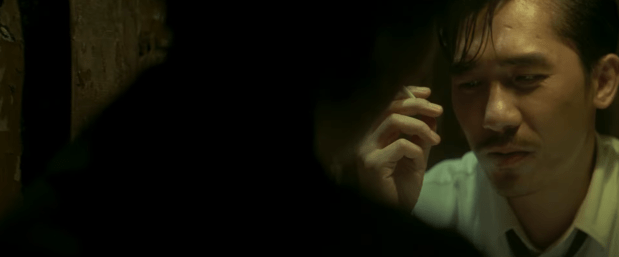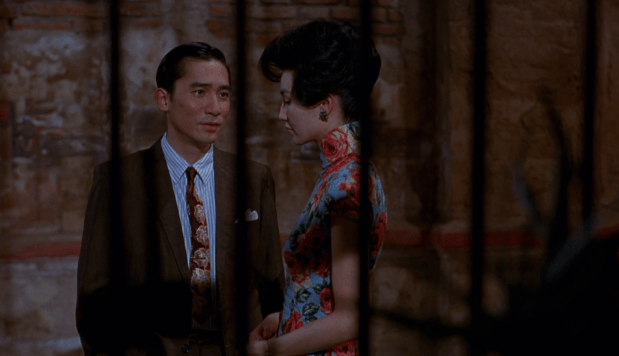This is Best Movie of All Time, an eternal search for the greatest film ever. Read the full archives here.
Seven years ago I watched every move that had ever won Best Picture at the Oscars. I wrote about them all here; not everything on there is something I stand by, but it was an interesting journey through film. The self-imposed timeline of one year kept it fresh and forced me to often watch movies when I didn’t really want to, which may not be the best way to watch nearly a century of iconic films. I had to watch 2046 because it was going to leave The Criterion Channel, but I really wanted to see it. It’s a sequel to In the Mood for Love, a movie I once called the Best Movie of All Time on this very dumb series.
It’s just not very good. I feel a tremendous amount of shame for saying that because it’s a celebrated masterpiece and because In the Mood for Love was so excellent. The New York Times called it an “unqualified triumph,” which is crazy praise. I tend to side more with Roger Ebert’s review where he said “I wonder what it could possibly mean to anyone not familiar with Wong’s work and style.” Director Wong Kar-Wai is obviously a master and it feels crazy to criticize a movie like this from where I sit, but I don’t think 2046 is very good and I don’t think you should watch it.
Think about whatever cultural touchstone you don’t like. I met someone years ago who said they couldn’t understand why Parks and Recreation was funny and I still think about that person. It’s not a perfect show, but they were deliberate in saying they couldn’t even access whatever made it a comedy to other people. It read like an alien text to them, just shut off completely. 2046 isn’t that, but it is equally hard to approach something with near-universal appeal and say it isn’t good. You feel like it’s you. It probably is, statistically speaking, you.
2046 is a sequel in that the main character continues into this text, but it’s largely a different thing. The main character is jaded now, so he resists the emotional trappings of love and relationships. We watch him have meaningless sex and label it as such, even as other people try to connect with him. He monologues in voiceover about how these are mistakes but also how they are the only way he can see the world. It’s not really as bad as all that, but he definitely becomes hard to root for and that lends a certain Cassavetes vibe to the whole thing. These are sad people who wish they could behave differently, but we are wired how we are wired.
There is a science fiction story draped on top of 2046, where supposedly humanity tries to go to a specific place in the future to realize their true desires. This is a story that is written and I mean this when I say that it is not interesting at all. The main thrust of 2046 is about how we deal with the fallout of lost love. That part, truly, is interesting, if not necessarily explored in a way that fills a full feature film. The futuristic elements of 2046 are not worth watching and they are not worth discussing here.
I did not hate this movie. I really like about 60% of it and I think those parts are a worthy story to tell. They are interspersed with a story that is absolutely not worth watching and I have spent a few days trying to find a way to talk about that and I have not found it. There’s just a lot here that I don’t think anyone could like. I have to say, from where I sit, that much of 2046 is poorly wasted time.
That’s the whole of it, right? The only purpose of talking about a movie here is to tell you if it’s worth your time. Most people would tell you this is. I am breaking from those ranks. The problem seems to be with me, as I watched the trailer again and the comments are from people who count this among their favorite films.
The premise of this series is to challenge the author, me, to experience every film as if it is trying to achieve an impossible standard. I thought In the Mood for Love achieved that. I don’t think 2046 does. Does that mean it’s terrible? Of course not. Should you watch it? I think it depends on your love of the last one. This is a big drop off, mostly because I don’t think the synthesis of ideas works, but if you found yourself hoping for more then you will find some of it here. Some of it is even beautiful. It just tries your patience in a way that greatness probably shouldn’t.
Is it better than the last movie we looked at? Yes, this is better than The Nowhere Inn. I don’t really like either movie, but this one has pieces I do enjoy.
Is it the best movie of all time? No. It’s not as good as the original film and it’s not as good as Persona. I think you owe any movie that anyone loves a chance. I asked people to tell me their favorite movies before I started this and I’ve watched almost everything everyone mentioned. I do not mean to discount anyone who loves 2046, but it doesn’t do for me what it does for those folks.
You can watch 2046 on Tubi or Pluto TV. You can recommend a movie to me for this series through email at readingatrecess @ gmail.com or on Twitter @alexbad and I will watch it, no matter what. Try to pick something good.

